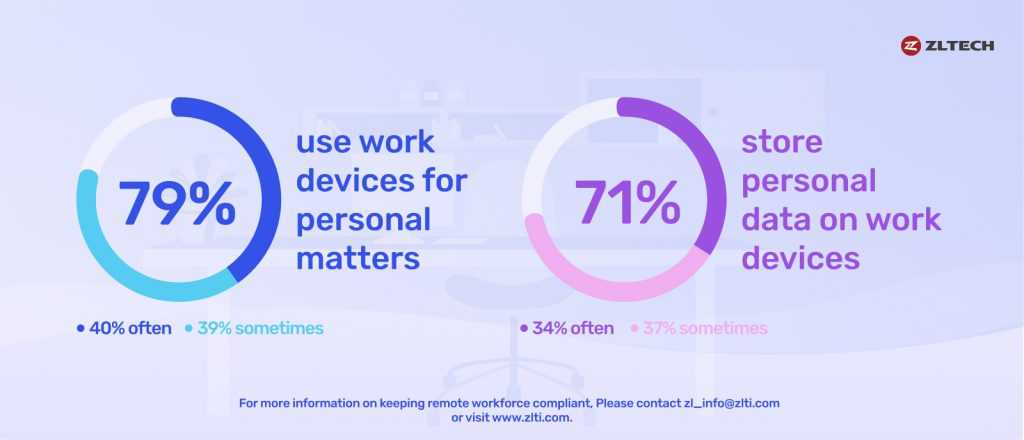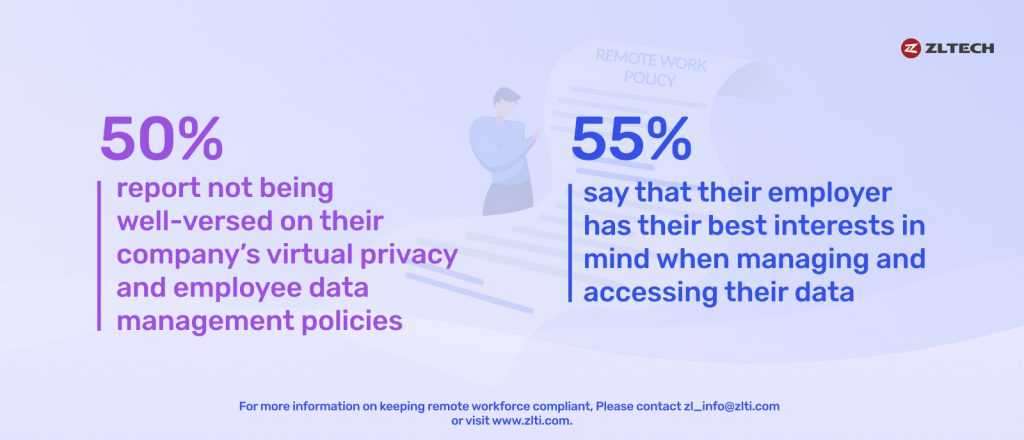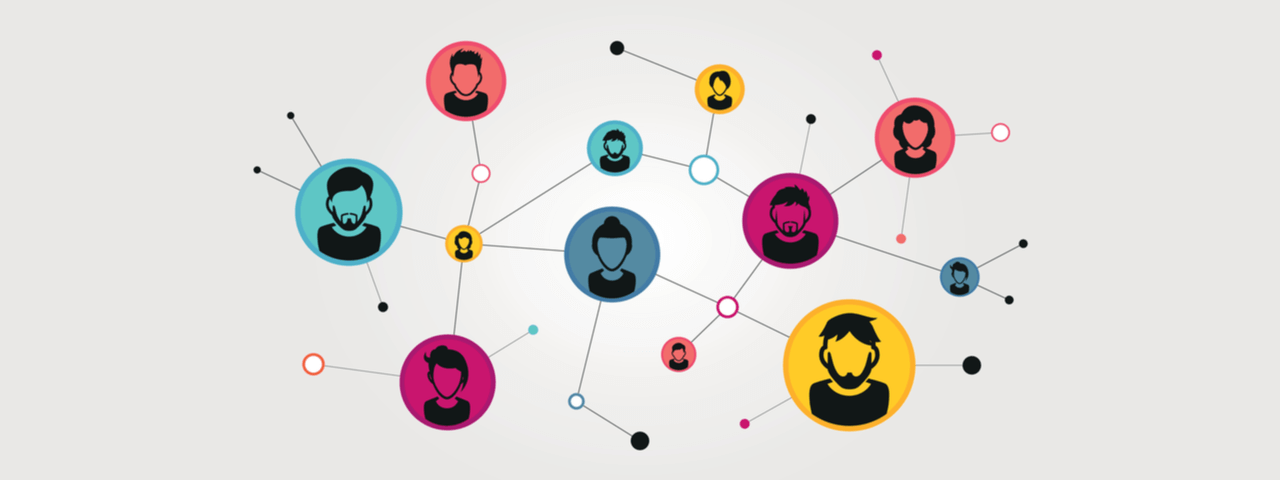
Employees are increasingly using work devices for personal use
As large portions of the workforce continue operating from home to reduce the spread of COVID-19, the boundaries between professional and personal spheres are eroding. In a ZL Tech study (infographics) conducted by Dynata, 84% of remote work respondents reported an overlap between their personal and work lives since the beginning of the pandemic. This is further evident by how many individuals are using work devices for both personal activities (79%) and personal data storage (71%).

Despite the near uniform agreement that there is a convergence, individuals are divided as to how involved they are willing to let their employers be in their new “offices.” This schism is best exemplified by how in one question, 55% of participants reported feeling that their employer had their best interests in mind when accessing and managing employee data; while in a separate question, 49% of participants expressed concern that their employer might have access to their personal data and information. A near-even split, workers are torn as to whether or not they are comfortable with their employers peering into their non-work lives.

These divisions are present as well when discussing potential monitoring policies. For example, 51% of respondents were comfortable with employee monitoring if it were conducted to improve productivity and create coworker synergy; whereas, only 46% of respondents were comfortable with their employer running analytics on work IMs, documents saved on their computer, and emails. However, the degree to which these concerns are well-founded remains unclear, as 50% of respondents were not well-versed with their company’s privacy and data management policies.
Companies’ current technological capabilities are ill-equipped to meet regulation standards
While each company may have different internal policies for personal data governance, most companies are forced to comply with larger mandates, such as the European Union’s General Data Protection Regulation (GGPR) and the California Consumer Privacy Act (CCPA). Complying with such regulations paradoxically requires complete control over personal information, which is outside the realms of most organizations’ current technological capabilities.
The matter is further complicated by the fact that over 70% of respondents used their work device for personal usage and storage; resulting, in a wealth of personal information that they do not have the bandwidth to properly oversee. Moreover, privacy laws often stand in direct opposition to other regulatory measures, such as compliance, that penalize data deletion. All of which leaves companies to navigate: (i) how they can identify personal information as necessitated by privacy laws and (ii) what to do if personal information is embedded within files that cannot be defensibly deleted— which law should they prioritize?
Companies should calculate the costs and benefits of increased employee monitoring
Recentering the conversation back on intentional employee monitoring, under most circumstances, employers are legally allowed to monitor employee data on work devices. That said, when considering the ways in which they can leverage personal data or employee monitoring tactics, employers should factor in the overall costs and benefits of doing so. While the power of employee analytics is compelling, with each additional method of observation comes costs. For instance, take the survey question that asked if remote workers would be comfortable with their employer implementing monitoring tools to better productivity and coworker synergy. While 51% said they would be comfortable, 22% of respondents said they would be uncomfortable (the remaining 28% had no opinion). In this case, an employer would have to ask themselves if the benefits of implementing monitoring tools outweigh the cost of employee discomfort.
All of which is by means of saying that privacy in the age of mixed personal and professional lives is more complicated than it may appear. Employers and employees alike must artfully traverse the lines between privacy and compliance; and between work and home.
Related Posts
Additional Resources
How to avoid re-processing of data?
Master the Art of Efficiency: Quick Technique on Avoiding Data Re-processing!...
Meta-Data Analysis Vs. In-Depth Analysis
Meta-Data Analysis and In-Depth Analysis are both extensively used by organizations. Here is the comparison between the two approaches and…...
Identifying top performers and key innovators with network analysis
From Anecdotes to Insights - Empowering Organizations with Data Driven Talent Management....


